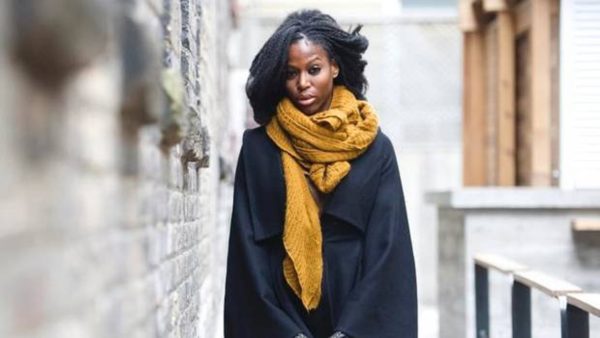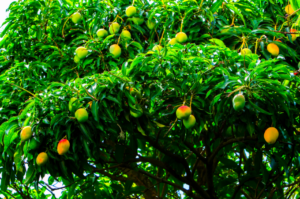
Before her acclaimed debut novel Ghana Must Go dropped in 2013, we first had a taste of Taiye Selasi’s fiction in 2011, in a short story published in Granta‘s Summer 2011 The F Word issue, a breathlessly musical thing titled “The Sex Lives of African Girls.”
Told in the second person, and centered around a young girl’s observation of her world filled with affluence and sex, the nearly-novella-length, 33-page story is stunning in its elevation of almost every sentence, every experience it records, into art. It is set in Accra, where the 11-year-old girl, Edem, lives with her aunt and uncle who rescued her from a life with her prostitute mother in Nigeria.
A little background here: In 2006, Taiye Selasi—already a rising star following her seminal 2005 essay on Afropolitanism—met Toni Morrison. After Selasi mentioned that she hadn’t written anything serious in a long time, Morrison gave her a one-year deadline to write a story and send to her. “The Sex Lives of African Girls” was the result of this mentorship. But since its publication, Granta had kept it locked, to be read only if subscribed to the magazine. Until a random visit to their Website yesterday evening by us revealed that it had reappeared in their Classics section.
This story by Selasi is arguably the most discussed non-book-length fiction by an African writer so far in this decade. In 2011, NPR interviewed Selasi about the story. In 2012, it was included in the Best American Short Stories anthology. And there are a host of analyses of the story by The Missouri Review, Litro, and the blogs A Just Recompense and The Purple Mango Pandemonium, among several others. There is also a video of Selasi reading the first section on YouTube.
We are not sure why, but it appears Granta did this to give us an early Easter gift. Bless them!
Here is the first section.
Begin, inevitably, with Uncle.
There you are, eleven, alone in the study in the dark in a cool pool of moonlight at the window. The party is in full swing on the back lawn outside. Half of Accra must be out there. In production. Some fifty-odd tables dressed in white linen table skirts, the walls at the periphery all covered in lights, the swimming pool glittering with tea lights in bowls bobbing lightly on the surface of the water, glowing green. The smells of things – night-damp earth, open grill, frangipani trees, citronella – seep in through the window, slightly cracked. You tap the glass lightly and wave your hand, testing, but no one looks up. They can’t see for the dark. It rained around four for five minutes and not longer; now the sky is rich black for its cleansing. Beneath it a soukous band shows off the latest from Congo, the lead singer wailing in French and Lingala.
She ought to be ridiculous: little leopard-print shorts, platform heels, hot-pink half-top, two half-arms of bangles. Instead, wet with sweat and moon, trembling, ascendant, all movement and muscle, she is fearsome. It is a heart-wrenching voice, cutting straight through the din of the chatter, forced laughter, clinked glasses, the crickets. She is shaking her shoulders, hips, braided extensions. She has the most genuine intentions of any woman out there.
And they.
Their bright bubas adorn the large garden like odd brilliant bulbs that bloom only at night. From the dark of the study you watch with the interest of a scientist observing a species. A small one. Rich African women, like Japanese geisha in wax-batik geles, their skin bleached too light. They are strange to you, strange to the landscape, the dark, with the same polished skill-set of rich women worldwide: how to smile with full lips while the eyes remain empty; how to hate with indifference; how to love without heat. You wonder if they find themselves beautiful, or powerful? Or perplexing, as they seem to you, watching from here?
The young ones sit mutely, sipping foam off their Maltas, waiting to be asked to dance by the men in full suits, shoving cake into their mouths when they’re sure no one’s looking (it rained around four; no one sees for the dark). The bolder ones preening, little Aunties-in-training, being paraded around the garden, introduced to parents’ friends. ‘This is Abena, our eldest, just went up to Oxford.’ ‘This is Maame, the lawyer. She trained in the States.’Then the push from the mother, the tentative handshake. ‘It’s a pleasure to meet you, sir. How is your son?’ You wonder if they enjoy it. You can’t tell by watching. They all wear the same one impenetrable expression: eyebrows up, lips pushed out, nostrils slightly flared in poor imitation of the 1990s supermodel. It is a difficult expression to pull off successfully, the long-suffering look of women bored with being looked at. The girls in the garden look more startled than self-satisfied, as if their features are shocked to be forming this face.
But their dresses.
What dresses. They belong on the cake trays: as bright, sweet and frothy as frosted desserts, the lacy ‘up-and-downs’ with sequins, tiny mirrors and bell sleeves, the rage in Accra this Christmas. It’s the related complications – tying the gele, the headwrap; wrapping then trying to walk in the ankle-length skirt; the troubling fact that you haven’t got hips yet to showcase – that puts you off them.
You can barely manage movement in the big one-piece buba you borrowed from Comfort, your cousin, under duress. The off-the-shoulder neckline keeps slipping to your elbow, exposing your (troublingly) flat chest. Absent breasts, the hem drags and gets caught underfoot, a malfunction exacerbated by your footwear, also Comfort’s: gold leather stilettos two sizes too small with a thick crust of sequins and straps of no use. You’ve been tripping and falling around the garden all evening, with night-damp earth sucking at the heels of the shoes, the excess folds of the buba sort of draped around your body, making you look like a black Statue of Liberty. Except: the Statue of Liberty wears those comfortable sandals and doesn’t get sent to go fetch this and that – which is how you’ve now found yourself alone in the study, having stumbled across the garden, being noticed as you went: little pretty thing, solitary, making haste for the house with the shuffle-shuffle steps of skinny girls in women’s shoes; and why you tripped as you entered, snagging the hem with your heel, the cloth yanked from your chest as you fell to the rug.
And lay. The dry quiet a sharp sudden contrast to the wet of the heat and the racket outside. And as sharply and as suddenly, the consciousness of nakedness. Eve, after apple.
Your bare breastless chest.
How strange to feel naked in a room not your own, and not stepping from the bath into the humidity’s embrace, but here cold and half naked in the leather-scented darkness, remembering the morning, the rain around four. This was moments ago (nakedness) as you lay, having fallen, the conditioned air chilly and silky against your chest. Against your nipples. Two points you’d never noticed before but considered very deeply now: nipples. And yours. The outermost boundaries of a body, the endpoints, where the land of warm skin meets the sea of cold air. Shore. You lay on your back in the dark on the floor, like that, newly aware of your nipples.
Presently, the heart-wrenching voice floating up from the garden, ‘Je t’aime, mon amour. Je t’attends.’ You sat up. You listened for a moment, as if to a message, then kicked off the sandals and stood to your feet. You went to the window and looked at the singer, in flight on the stage, to the high note. ‘Je t’attends!
Indeed.
So it is that you’re here at the window when, five minutes later, he enters the room, his reflection appearing dimly on the window before you, not closing the door in the silvery dark. You think of the houseboys with their lawn chairs in an oval reading Othello in thick accents, Uncle watching with pride. Demand me nothing: what you know, you know. From this time forth I never will speak word. (Likely not. With the thing come together, the pattern emerging, the lines, circles, secrets, lies, hurts, back to this, here, the study, where else, given the fabric, the pattern, the stars. What to say?)
Enter Uncle.
Read “The Sex Lives of African Girls” in Granta.









samuel dzombo April 21, 2017 04:48
Fine and good.Inspiring too.